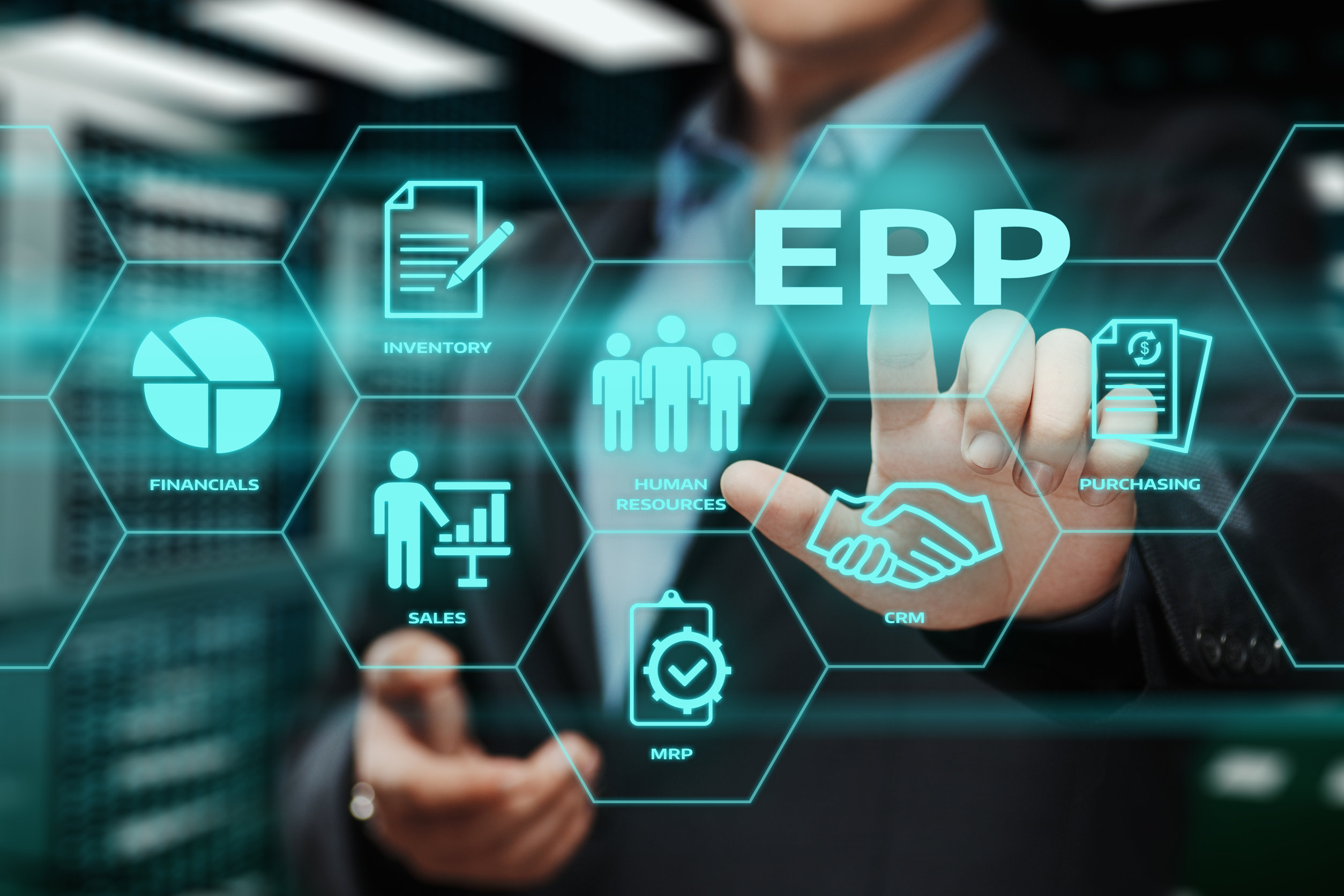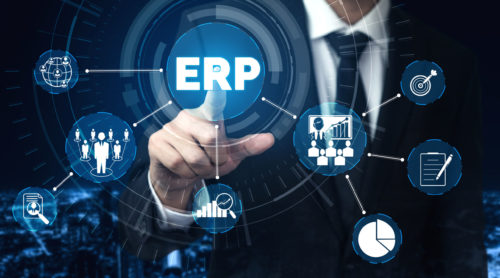HRUs play a vital role in centralizing and maintaining staff records and benefits information, as well as tracking working hours, paid vacations, sick days used and others, and in this context provides the human resources component of ERP (ERP) Tools that streamline human resources functions, such as recruitment, recruitment, staff management, performance assessment, payroll processing, and other features offered by ERP Human Resources, which we will recognize in our article for today.

What is the meaning of ERP?
ERP is an integrated software application that manages day-to-day business and operations across finance, human resources, procurement, distribution, supply chain and other functions.
ERP is an important application for most organizations because it integrates all the processes needed to run their business into a single system that also facilitates resource planning, as ERP systems typically operate on an integrated software platform using shared data definitions that operate on a single database.
ERP's relationship with human resources
Payroll management requires cooperation between the areas of accounting and human resources, where payroll managers request specific information on all staff in the Organization: number of hours worked, days off, bonuses, etc., and HR professionals must provide this information, but updating all such data may take some time.
ERP can be applied to HR through one of its units, so that HR operations can be managed alongside those in other areas. In addition, ERP is compatible with HR information systems (HRIS), and as a result, human resources professionals can directly manage all staff information, analyse their performance and make all necessary changes.
The ERP HR program is especially used to track various people-related functions, such as planning, payroll, management, development, recruitment and more, business services, such as standard operating procedures, job advertisements, news, forums, working hours tracking, benefits, etc., can be consolidated into one unit, making comprehensive management and decision making easier.
ERP's human resources benefits
ERP Human Resources allows you to closely monitor all recruitments and many other tasks in one platform, as well as the following benefits:
Central database and efficiency tracking
ERP provides many benefits to organizations of all sizes, including providing a centralized database that allows HR professionals to access staff data and information more easily. This eliminates the need for multiple systems and spreadsheets, reducing the risk of errors and making data management more efficient.
ERP also allows HR to track how much competence a particular employee puts into a particular process, and although this is just a set of collective data analyzed to provide important insights, it can really help companies accelerate their performance while ensuring time and costs.
Automation of human resources
The ERP HR program automates many HR processes, such as salary management, leave requests and performance evaluation, not only saves time, but also reduces the likelihood of mistakes and omissions. HR professionals with the best ERP system can focus on more strategic tasks, such as talent acquisition and development, resulting in a more productive and participatory workforce.
The ERP HR program provides HR officials by automating the trouble of continuously tracking and updating the database accurately, while remaining up-to-date at its best, and therefore, the solution creates a broad field for HRD staff to effectively plan the workforce, evaluate performance, track career history, train and develop, and other HR-oriented activities.
Better analysis and easy access
The integrated ERP HR program allows for better reporting and analysis. Through ERP, HR professionals can create real-time reports on staff performance, staff turnover and training needs. These ideas allow organizations to make data-driven decisions and develop effective HR strategies consistent with business goals.
Preparation of reports
Reporting is one of the main features of any ERP HR program which can help stakeholders to know the important aspects of business operations and activities, Because it is assembled and created based on work requirements, it can also highlight red zones or human resource problems, Reports can be prepared on request or on a scheduled basis as required by business or stakeholders.
It will also be easy with ERP to access ERP data once set up, at the same time facilitating data entry and withdrawal together in reports.
Easier salary management and employee tracking
Companies can benefit from ERP HR solutions based on advanced cloud that can interact with payroll solutions human resources accounting system ", enables ERP to deal with all their responsibilities, Including payroll operations, on a single platform, since this cloud HR erp software can be connected to many applications, it enables companies to accurately create employee payrolls using information from time tracking software.
Also, the organization may have thousands of employees, and it may become difficult for them to manage it all manually, To solve various challenges, there must be a centralized system through which all employees' data can be managed ad hoc and maintained on a regular basis. Here he highlights the role of the ERP human resources programme, which allows to retain a large amount of data and help companies better track employees.
Conclusion:
Human resources are one of the core resources of any business organization, and since they are one of the critical resources for effectively operating and managing your business operations, it is important that you manage them well by meeting the requirements of both organizations and staff without any gaps, and this will only be done through an effective ERP human resources program.
other topics:
reference
1. <<5 Essential Benefits of Choosing an Efficient ERP System>>, readwrite
2. <<Reasons to Use ERP Systems in Businesses>>, enterprisetalk

Add New Comment